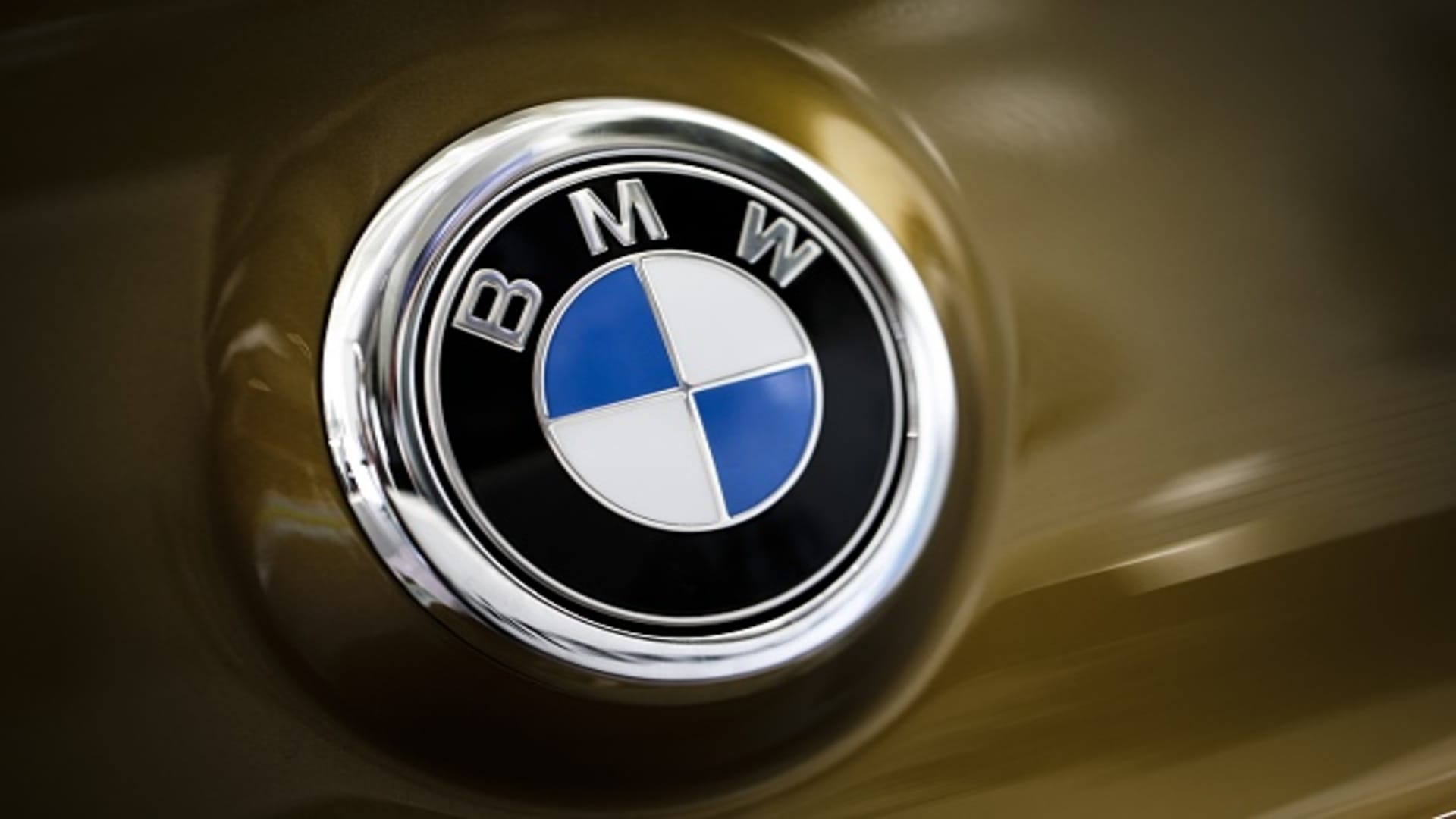Are BMW And Porsche Losing Ground In China? Analyzing Market Trends

Table of Contents
The Rise of Domestic Chinese Automakers
The resurgence of Chinese automakers is a major factor impacting the market share of established international brands like BMW and Porsche.
Increased Brand Recognition and Consumer Trust
- BYD, Nio, and Xpeng are no longer niche players. These brands have achieved remarkable success, building strong brand recognition and garnering consumer trust through consistent quality improvements and innovative designs.
- Chinese automakers are rapidly advancing in technology, design, and manufacturing processes, resulting in vehicles that rival, and in some cases surpass, their international counterparts in terms of features and reliability. This improved quality directly addresses past consumer concerns.
- Government support, including subsidies and favorable policies, has significantly boosted the growth of domestic brands, allowing them to invest heavily in R&D and expand their market reach.
Competitive Pricing and Features
- Chinese automakers often offer vehicles with comparable features at significantly lower price points than BMW and Porsche, making them highly attractive to price-sensitive consumers. This competitive pricing strategy is a crucial factor in their success.
- Many Chinese brands incorporate advanced features, including cutting-edge ADAS and fully electric powertrains, often exceeding the offerings of established luxury brands in certain segments. This focus on technology is attracting a younger, tech-savvy generation of Chinese drivers.
- Features like extensive connectivity options and advanced infotainment systems, tailored to the preferences of the Chinese market, further enhance the appeal of domestically produced vehicles.
Shifting Consumer Preferences in China
Beyond the rise of domestic brands, evolving consumer preferences are reshaping the Chinese automotive landscape.
Growing Demand for Electric Vehicles (EVs)
- China is a global leader in EV adoption, with a rapidly expanding market fuelled by government incentives and growing environmental awareness. This shift significantly impacts traditional luxury automakers.
- While BMW and Porsche are investing in EVs, their current range and market penetration lag behind some Chinese competitors who have focused heavily on electric vehicles from the outset. This gap needs to be addressed quickly.
- China's robust charging infrastructure and supportive government policies, including substantial purchase subsidies, continue to accelerate EV adoption, favoring brands with a strong EV portfolio.
Focus on Technology and Innovation
- Chinese consumers place a high value on technological innovation and connectivity features in their vehicles. This preference is driving demand for vehicles with advanced driver-assistance systems, sophisticated infotainment, and seamless integration with mobile devices.
- Chinese brands are often perceived as more technologically advanced in specific areas, such as connectivity and AI-powered features, potentially making them more attractive to tech-savvy consumers compared to some of their established rivals.
- Consumer perception of technology plays a significant role in brand loyalty. Chinese brands are skillfully leveraging this by emphasizing their technological leadership.
Economic and Geopolitical Factors
External forces also contribute to the changing dynamics of the Chinese automotive market.
Impact of Trade Wars and Tariffs
- Past trade tensions between China and Germany have led to tariffs on imported vehicles, increasing the cost of BMWs and Porsches and making them less competitive compared to domestically produced alternatives.
- These tariffs directly impact pricing, making imported luxury vehicles less attractive to price-conscious buyers. The impact has been significant and lasting.
- The uncertainty created by trade disputes can also affect consumer confidence and purchasing decisions, hindering sales for imported brands.
Economic Slowdown and Consumer Spending
- Economic fluctuations in China can significantly influence consumer spending on luxury goods, including high-end automobiles. Economic uncertainty can lead to delayed purchasing decisions.
- Periods of economic slowdown might cause consumers to prioritize value and affordability, further benefiting more competitively priced domestic brands over premium imports.
- This sensitivity to economic conditions directly impacts the market share of brands like BMW and Porsche, making them vulnerable during periods of economic uncertainty.
Are BMW and Porsche Losing Ground in China? A Final Verdict
Our analysis reveals that BMW and Porsche are facing significant challenges in the rapidly evolving Chinese automotive market. The rise of competitive domestic brands, shifting consumer preferences towards EVs and technology, and external economic factors are all contributing to this shift. While these luxury brands still hold a place in the market, maintaining or regaining significant market share requires strategic adaptation. This could include a more aggressive push into EVs, tailoring offerings to meet specific Chinese consumer preferences, and recalibrating pricing strategies to remain competitive. The future of BMW and Porsche in China hinges on their ability to navigate these challenges effectively.
To stay informed about the evolving automotive landscape in China, and the ongoing debate on whether BMW and Porsche are truly losing ground, continue to follow this discussion! Share your thoughts and predictions on the future of BMW and Porsche in China, and the broader trends impacting the Chinese automotive market, including the competition between domestic and international brands in the luxury car market in China. What's your take on the future of BMW and Porsche in China?

Featured Posts
-
 I Sygkinitiki Anartisi Toy Travolta Gia Ton Thanato Toy Xakman
Apr 24, 2025
I Sygkinitiki Anartisi Toy Travolta Gia Ton Thanato Toy Xakman
Apr 24, 2025 -
 Blue Origin Cancels Launch Vehicle Subsystem Issue Delays Mission
Apr 24, 2025
Blue Origin Cancels Launch Vehicle Subsystem Issue Delays Mission
Apr 24, 2025 -
 Weather Experts Sound Alarm Trump Cuts Increase Tornado Season Vulnerability
Apr 24, 2025
Weather Experts Sound Alarm Trump Cuts Increase Tornado Season Vulnerability
Apr 24, 2025 -
 Pandemic Fraud Lab Owner Pleads Guilty To Falsifying Covid Test Results
Apr 24, 2025
Pandemic Fraud Lab Owner Pleads Guilty To Falsifying Covid Test Results
Apr 24, 2025 -
 How Elite Universities Are Responding To Funding Cuts Under The Trump Presidency
Apr 24, 2025
How Elite Universities Are Responding To Funding Cuts Under The Trump Presidency
Apr 24, 2025
